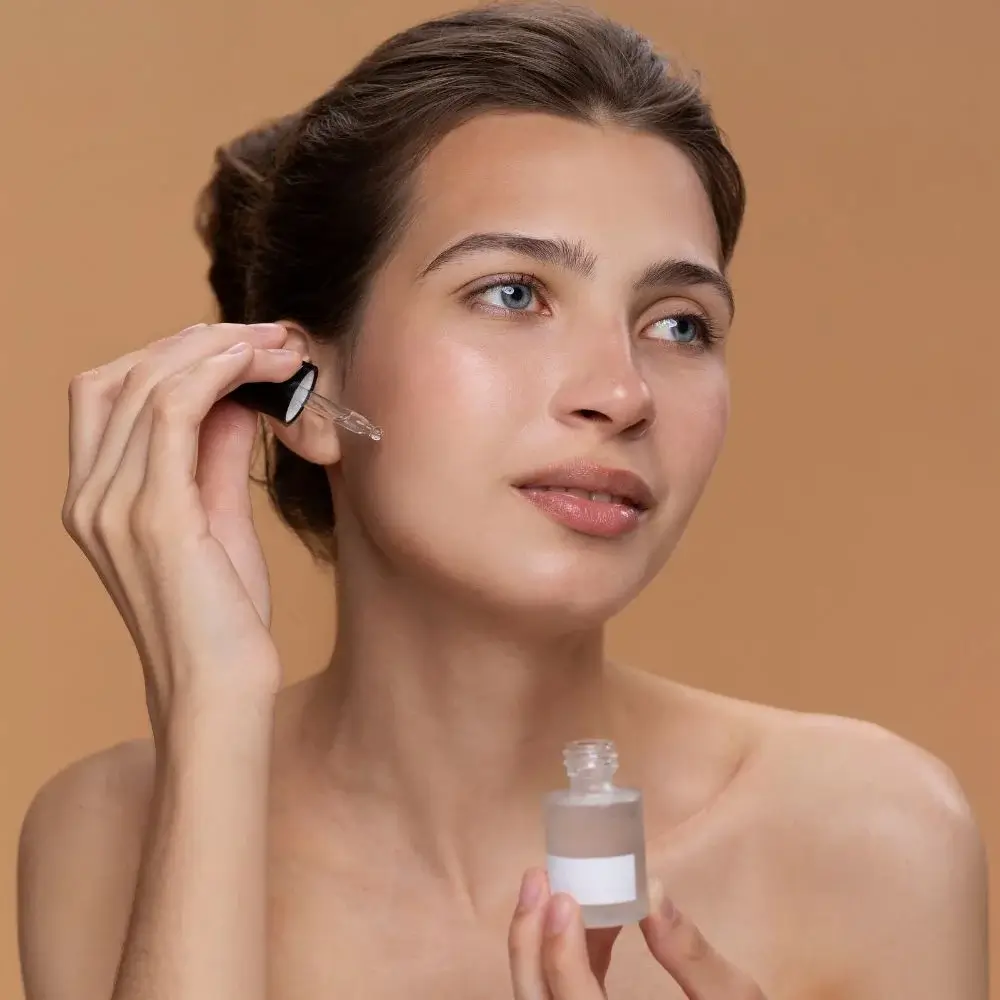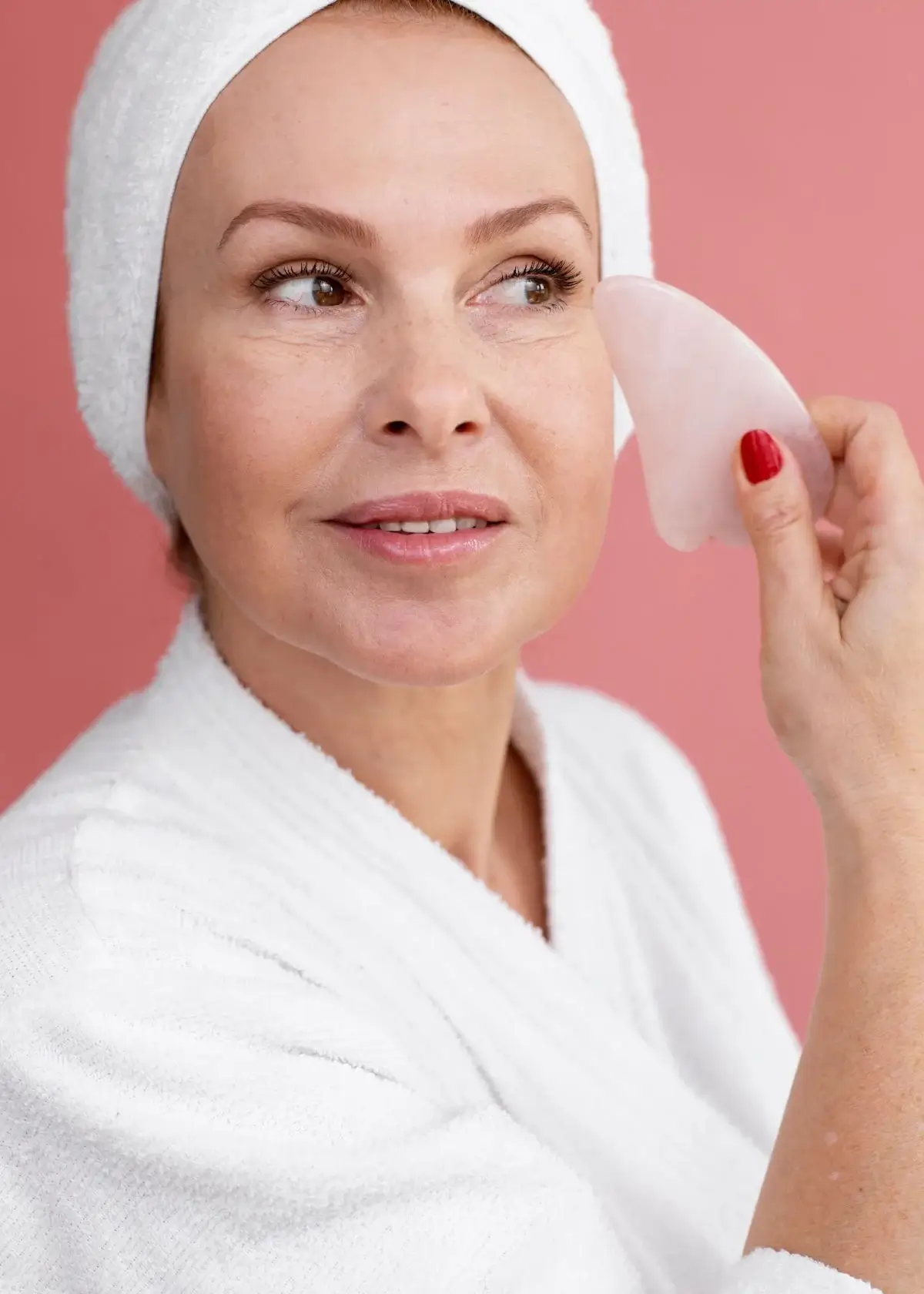With the increasing awareness of the harmful effects of synthetic chemicals, more and more people are opting for natural, organic products when it comes to skincare. The skin is the largest organ of our body, and it deserves the best care possible. One of the essential products in a skincare routine is a moisturizer, but with so many options available, how do we know which one to choose? In this blog post, we’ll cover what ingredients to look for in an organic face moisturizer.
Hydration
The main function of a moisturizer is to hydrate the skin, so it's important to look for ingredients that can provide that. Organic face moisturizers typically contain water-binding agents such as hyaluronic acid, glycerin, and aloe vera. Hyaluronic acid is a superhero ingredient that can hold up to 1000 times its weight in water, making it excellent for retaining moisture in the skin. And glycerin and aloe vera both help in locking in hydration. Organic face moisturizers are an excellent way to care for your skin while avoiding harmful chemicals. The list of ingredients mentioned above is just a starting point; there is always room to try new products and see which works best for you.
Antioxidants
Environmental factors such as sun damage and pollution expose us to free radicals, leading to oxidative stress and aging. Antioxidants help neutralize these free radicals and protect the skin from further damage. Ingredients like vitamin C, vitamin E, green tea, and rosehip oil are all great options to look for in an organic face moisturizer. They help brighten the skin, reduce pigmentation, and boost collagen production.
Soothing Ingredients
If you have sensitive skin, looking for a moisturizer with soothing ingredients is essential. Ingredients such as chamomile, calendula, and lavender have anti-inflammatory properties that help reduce redness, calm irritation, and relieve sensitive skin. It is always beneficial to patch reviews before using new products.
Non-comedogenic Oils
Moisturizers containing oils can nourish and protect the skin barrier, but choosing non-comedogenic ones is important. Comedogenic oils can clog pores, leading to breakouts and blackheads. Look for moisturizers containing oils like argan, jojoba, and rosehip oil, as they are non-comedogenic and help restore the skin's natural moisture barrier.
Natural Colors and Fragrances
Typically, synthetic fragrances and colors can be damaging to the skin. However, with organic face moisturizers, natural fragrances are used. Essential oils like lavender, eucalyptus, and jasmine are natural and have aromatherapy benefits. And, instead of artificial colors, the natural color from the ingredients is preserved.
Organic face moisturizers are an excellent way to care for your skin while avoiding harmful chemicals. The list of ingredients mentioned above is just a starting point; there is always room to try new products and see which works best for you. When choosing a moisturizer, try to find one with a balance of hydrating, antioxidant-rich, soothing, nourishing, and natural ingredients to help protect and nourish your skin. Give your skin the love and care it deserves, and you will see the difference.
Beauty lovers, have you been searching for the perfect organic face moisturizer? Our beauty editors have researched and found the best organic face moisturizer. Click the link and discover your next favorite beauty product. Say goodbye to harsh chemicals and hello to natural ingredients that will leave your skin feeling soft, nourished, and hydrated. Trust us; you won't regret trying our top pick for the best organic face moisturizer. So what are you waiting for? Click the link and start your journey towards healthier, glowing skin!
What is the difference between organic and non-organic face moisturizers?
Organic face moisturizers are formulated with natural plant-based ingredients, while non-organic moisturizers often contain synthetic compounds. Organic options prioritize eco-friendly practices and are free from pesticides, artificial fragrances, and harsh chemicals. On the other hand, non-organic moisturizers may have a longer shelf life due to preservatives. Choosing organic ensures a more sustainable, skin-friendly option that aligns with environmental consciousness.

What are the potential risks or side effects of using organic face moisturizers?
While organic face moisturizers generally have fewer risks than non-organic ones, it's important to acknowledge that individual reactions may vary. Some people may experience allergic reactions or skin irritations due to specific botanical ingredients in organic moisturizers. It's recommended to carefully check the ingredient list for potential allergens and conduct a patch review on a small skin area before regular use to determine any adverse reactions and ensure compatibility.

What are the potential benefits of using an organic face moisturizer for aging skin?
Organic face moisturizers designed for aging skin offer many potential benefits. They are often enriched with natural ingredients such as antioxidants, vitamins, and essential oils, which nourish and hydrate the skin while reducing the appearance of fine lines and wrinkles. These moisturizers may stimulate collagen production, improve elasticity, and protect against environmental damage, resulting in a more youthful and rejuvenated complexion for individuals with aging skin concerns.

How do organic face moisturizers benefit acne-prone skin?
Organic face moisturizers specifically formulated for acne-prone skin are valuable in skincare routines. They typically contain non-comedogenic ingredients that do not clog pores or exacerbate acne. These moisturizers often incorporate soothing botanical extracts like tea tree oil, aloe vera, or witch hazel, renowned for their antibacterial properties and ability to reduce inflammation. By delivering essential hydration without adding excess oil, organic moisturizers help balance sebum production, promote clearer and healthier-looking skin, and address the specific needs of individuals with acne-prone skin.

How can I store organic face moisturizers to prolong their shelf life?
Proper storage is crucial to optimize the shelf life of organic face moisturizers. Store them in a cool, dry place away from direct sunlight and excessive heat, as these factors can degrade the product. Ensure the container is tightly sealed after each use to prevent contamination and exposure to air. Avoid using wet fingers to scoop the moisturizer, as it may introduce bacteria. By adhering to these storage guidelines, you can extend the efficacy and longevity of your organic face moisturizer, ensuring that it remains effective and safe to use.
Should I patch-review an organic face moisturizer before applying it to my face?
Performing a patch review before applying any new organic face moisturizer to your entire face is highly advisable. Apply a small amount of the product to an inconspicuous area, such as the inner arm or behind the ear, and observe for 24 hours for any adverse reactions. This allows you to assess the compatibility of the moisturizer with your skin, identify potential sensitivities or irritations, and make an informed decision about its suitability. If no negative reactions occur during the patch review, you can confidently use the moisturizer on your face.







